Official Translation Services: When Do You Need Them and How to Ensure They’re Accepted

1. What Are Official Translation Services?
Specialized translation services provide guarantees of the accuracy and legality of documents when they are presented to authorities, courts, or other official institutions. These translations are most often performed by certified translators who follow strict guidelines to ensure that the translated document mirrors the original one, even down to the form and appearance of the original. If there are certain types of documents that are most in need of reliable translations, they are the kinds of documents that one has to present to official bodies:
Certified Translations: These translation types are guaranteed to meet the standards required for submission to official bodies such as government agencies, courts, and immigration authorities.
Certified Translations: Sometimes a translation must be certified. This means that the translator’s identity and the accuracy of the translation have been verified by a person (or entity) that is authorized to guarantee such things. In most cases, a notary public can provide this service.
Translation of Legal Documents: Legal documents necessitate not just a faithful rendering of the text but also a profound comprehension of legal lingo. This guarantees that the translated document possesses the kind of legal legitimacy one expects in the destination nation or jurisdiction.
Translations by professional translators are done to a high standard and with great care. As a result, they are often used in contexts where content must be fully understood and inarguably correct. This is one reason why official translations are necessary when dealing with government forms, immigration documents, contracts, or legal proceedings.
2. When Do You Need Official Translation Services?
Various situations exist where exact, legally binding translations are needed, and in those situations, people turn to official translation services. The most routine of these scenarios goes as follows:
Immigration and Visas: When applying for immigration, asylum, or visas, many nations require official translations of documents like birth certificates, marriage certificates, educational diplomas, and financial records. These translations must be certified to ensure they are legally recognized by the immigration authorities.
Court cases: If you are dealing with a court case that requires documents to be submitted in another language (e.g., contracts, court documents, affidavits), these documents need to be translated by a certified translator to be accepted by the courts. So, if you need a certified translator for legal proceedings, you might want to check out some of the certified translation services mentioned earlier.
Contracts and Agreements for Business: When one conducts business in other countries, it is often essential to render contracts and agreements into the local tongue. A translation done by a certified professional guarantees that all parties comprehend the stipulations and conditions in the identical manner, thus reducing the danger of language-based disputes.
Documents Related to Education: Transcripts, diplomas, and other educational records often necessitate certified translation when one is making an application to an overseas university or for professional licensing in another country. The translations of such documents must conform to the way the corresponding educational systems are set up in the target countries using the same or equivalent terminology.
Healthcare and Medical Records: When another language is needed for healthcare or medical records, certified translations are often quite necessary to ensure that the information gets to the medical professionals in an accurate manner.
3. Certified vs. Non-Certified Translation: What’s the Difference?
The appearance might suggest that any translation would do, but there is a difference between certified translations and your garden variety translation that is important when a legal or official document requires recognition. So, here we break it down:
Certified Translations:
Official Status: A certified translation carries with it an assertion from the translator or translation company that the translation is a true and accurate representation of the original document.
Legal Demands: Translated documents are commonly demanded for legal formalities. These documents, when required, are insisted upon by the law and must be translated in a precise and certified manner to be accepted as legal in nature.
Acceptance by Authorities: These translations have the official stamp of approval from courts, government agencies, universities, and other institutions that consider them to be legally valid.
Responsibility: Professional certified translators or translation companies are usually required to uphold high standards and are held responsible for the correct rendering of their translations.
Non-Certified Translations:
Casual Use: Non-official translators are usually engaged when a person wants to convert something from one language to another, but doesn’t expect the result to be recognized in any sort of formal context. For example, a non-certified translator might translate a letter for someone who wants to send it to a family member abroad, or translate a webpage for someone who’s browsing the internet in another language.
Reduced Expense: These translations are usually less costly due to the absence of an official certification and the requisite oversight to ensure the translation adheres to various legal or official standards.
Restricted Acceptance: Translations that are not certified may not be accepted by governmental or legal institutions.
When choosing a service for your specific translation needs, it is essential to grasp the distinctions between certified and non-certified translations. Say, for instance, you are applying for a visa or are in the process of submitting documents to a court. In those situations, you would require a certified translation.
4. How to Ensure Your Translation is Accepted Officially?
If you want your translation to be accepted by official bodies or authorities, you need to follow certain steps to ensure it meets the necessary standards.
1. Choose a Certified Translator or Translation Company: Work with a sworn translator or translation company that is certified and follows the proper certification procedures. Sworn translators are legally recognized to provide certified translations in many jurisdictions.
2. Confirm the Receiving Authority’s Requirements: Different authorities can have diverse requirements. For instance, certain immigration offices may mandate that only translations bearing a notary public’s seal are acceptable, while other offices may accept translations directly from the translator. Always double-check the requirements of the authority in question to sidestep delays.
The most vital aspect of getting your translation accepted is its accuracy. It must be a true and faithful rendering of the original document, with all the essential bits intact—the dates, the names, the titles, and probably a few other things too.
3. Ensure Notarization if Needed: If the body you are sending the translation to insists on it being notarized, you must go to the additional trouble of not only ensuring the translator is qualified (not every translator is) and the translation is accurate (not every translator is good), but also for finding a notary public to certify all of the above.
4. Supply Every Necessary Paper: In case the translation is part of a larger collection of documents, make sure that all are sent as requested. Not providing some could slow things down and even jeopardize getting a visa.
An instance of work we perform at Connected Translations includes providing certified translation services that meet the highest standards in the industry. This means that we can ensure your documents are translated in a way that they will be recognized everywhere by all the top authority figures around the world. This is especially important in places where the document may serve as a lynchpin for sensitive operations (think: legal work, translation of vital immigration forms, academic records). We guarantee acceptance of our translations by all the pertinent bodies.
5. Why Choose a Certified Translation Company Like Connected Translations?
It is very important to pick a certified translation company if one wants, with good reason, to ensure that one’s translations are reliable and legal. Connected Translations is a trusted choice, and here’s why: Experienced Translators: Our team is made up of experienced sworn translators who work in many specialized fields, including legal, medical, and business translation.
We provide certified and notarized translations, offering a complete solution for your official translation requirements.
Adherence to Standards: We guarantee that all our translations comply with local and worldwide standards, ensuring that they are accepted by governmental bodies, judicial systems, and other entities.
Promptness and Dependability: We provide speedy service, particularly with the translation of important documents that demand immediate attention, and we do not sacrifice excellence for the sake of swiftness.
Worldwide Presence: Our team of language specialists can provide translation in many tongues, so you have the help you need, no matter your time zone.
Selecting Connected Translations equates to selecting a reliable collaborator to manage the translation of your official documents; it is a choice made for professionalism and made with an eye to the careful handling of your translation needs.
Conclusion
When you need documents to maintain their legal standing and be processed by official entities like government agencies or educational institutions, you absolutely must use certified translation services. This is especially the case with legal documents, those used in the immigration process, or business contracts. Ensuring that these translations are accurate, certified, and—when necessary—notarized is essential to gaining the acceptance of the entities you are dealing with. Using a trusted certified translation company like Connected Translations means you will have your documents handled in a professional manner that allows them to clear all the legal hurdles required by the official entities you are dealing with.

Daniel Brooks is a New York City-based writer and content strategist with a deep curiosity for how language shapes connection across cultures. With over ten years of experience crafting digital content for global audiences, Daniel brings a thoughtful and practical voice to the Connected Translations blog.


